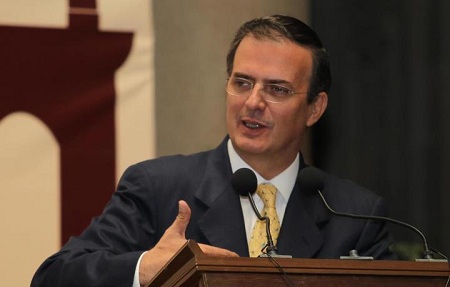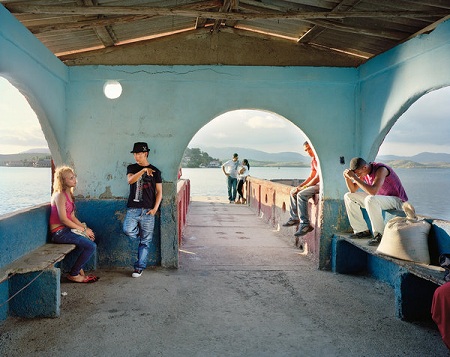Artur Mas, the president of Catalunya (pictured above), called early regional elections yesterday, which are set for November 25, and which will now follow two other key regional elections in October — in the other two ‘nationalities’ of Spain, the Basque Country and Galicia.![]()
![]()
The decision brings to the forefront of Spanish politics the question of Catalan independence during a period in which Spanish prime minister Mariano Rajoy is trying to balance increasingly harsh budget cuts against an economy mired in recession and 25% unemployment, trying to keep yields on Spanish debt from climbing too high (which surpassed 6% again this week) while also keeping his pledge never to seek a bailout from the European Union (a pledge that Rajoy seems increasingly unlikely to keep).
Mas’s decision amounts to the latest ploy in a game of chicken between Madrid and Barcelona, despite the fact that it’s a dangerous time for Spain (and for the eurozone) for either to be playing any such game. After a month in which the eurozone seemed largely on the right track — a pro-European election result in the Netherlands, the European Central Bank’s decision to buy eurozone debt, the German constitutional court’s decision to endorse the European Stability Mechanism and optimism on Greece’s continued membership in the eurozone — a Catalan/Spanish showdown could spook bondholders into another round of eurocrisis.
The elections come more than a year early — elections were not due until November 2013 — and they come after contentious negotiations between Mas and Rajoy over a bailout for Catalunya. At a time when many regional governments are struggling, Mas’s regional government is seeking a rebate of up to €5 million for Catalunya and a ‘fiscal pact’ under which Catalunya could levy its own revenues to be used solely in Catalunya. This comes in the shadows of strident pro-independence sentiment, with up to 2 million Catalans participating in pro-independence marches (pictured above) on September 11 earlier this month (that’s Catalan’s national day).
If Mas’s Convergència i Unió (CiU, Convergence and Union), a center-right and autonomist party, wins the election on the strength of a pro-independence wave, and if it garners an absolute majority in the 135-member Catalan parliament (the Parlament de Catalunya), Mas will have more leverage with Rajoy’s national government — and it seems likely that Mas and other Catalan nationalist parties will champion a referendum on either greater Catalan autonomy, a full declaration of Catalan nationhood or actual Catalan independence from Spain. Some polls now show over 50% of Catalans support independence, which has risen dramatically during the Spanish financial crisis of the past three years — just as Germans balk at sending money to shore up Greek and Portuguese (and Spanish!) finances, Catalans balk at shoring up broader Spanish finances.
If he wins, though, the danger is that Mas will become the unlikely champion of an independence movement that is moving faster than he might otherwise have liked. The snap elections only risk fanning the flames of Catalan independence further out of control of Mas, Rajoy or anyone in Spanish or Catalan politics.
Rajoy, who certainly has enough headaches of his own, has taken a largely conciliatory public stance, even as he looks for ways to isolate Mas at the federal level — in the broad fight between Mas and Rajoy over concessions to Catalunya, Rajoy has the support of his own party, the center-right Partido Popular (the PP, or the People’s Party) and the opposition leader, Alfredo Pérez Rubalcaba, the leader of the national center-left Partido Socialista Obrero Español (PSOE, Spanish Socialist Workers’ Party), as well as many of the regional presidents, who blanche at Catalunya getting a better deal than their regions.
Essentially, Catalan politics since the end of the Franco era has been traditionally a battle between two major parties:
Mas’s CiU (technically it is a federation of two similar parties) essentially ran Catalunya from 1980 until 2003 under the leadership of Catalan president Jordi Pujol. Although it technically won a plurality of seats in the 2003 and 2006 elections under Mas’s leadership, it won nearly an absolute majority in 2010, with 38.5% of the vote and fully 62 seats, just six seats short of such a majority.
The Partit dels Socialistes de Catalunya (PSC, Socialists’ Party of Catalunya) is the major center-left party in Catalunya, but remains much more federal in nature — it’s the Catalan variant of the national PSOE. It controlled Catalunya’s government from 2003 to 2010 in coalition with two smaller parties. It lost a significant number of seats in the prior 2010 election and holds 28 seats currently after receiving just 18% of the vote.
In response to Mas’s latest push, the PSC has called for a federal system, like in Germany (a call that has been met with something far less than enthusiasm from Rajoy’s government).
Meanwhile, five smaller parties also hold seats in the current Catalan parliament and will vie for support in the November elections: Continue reading Mas calls early elections in November for Catalunya amid growing calls for independence



